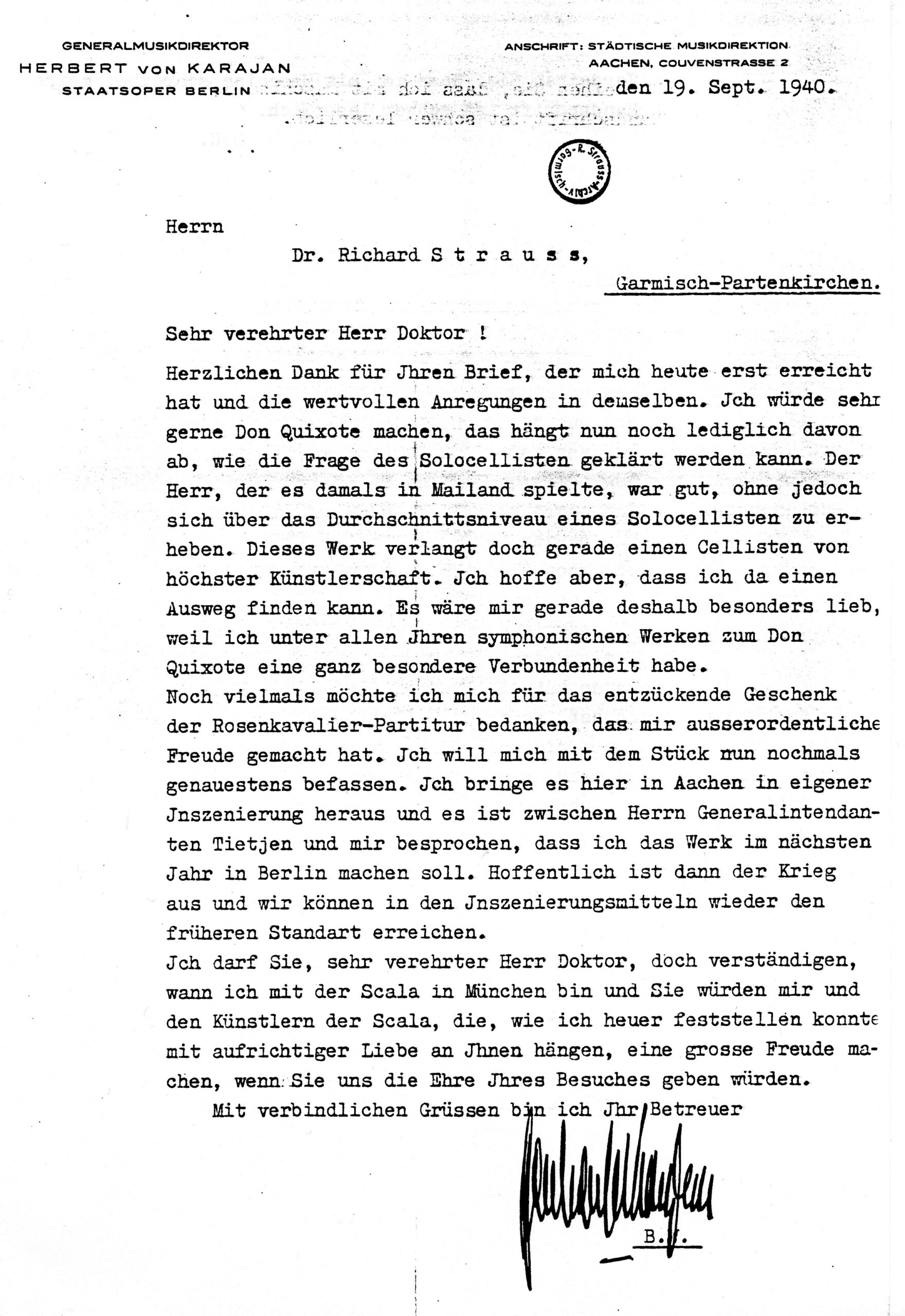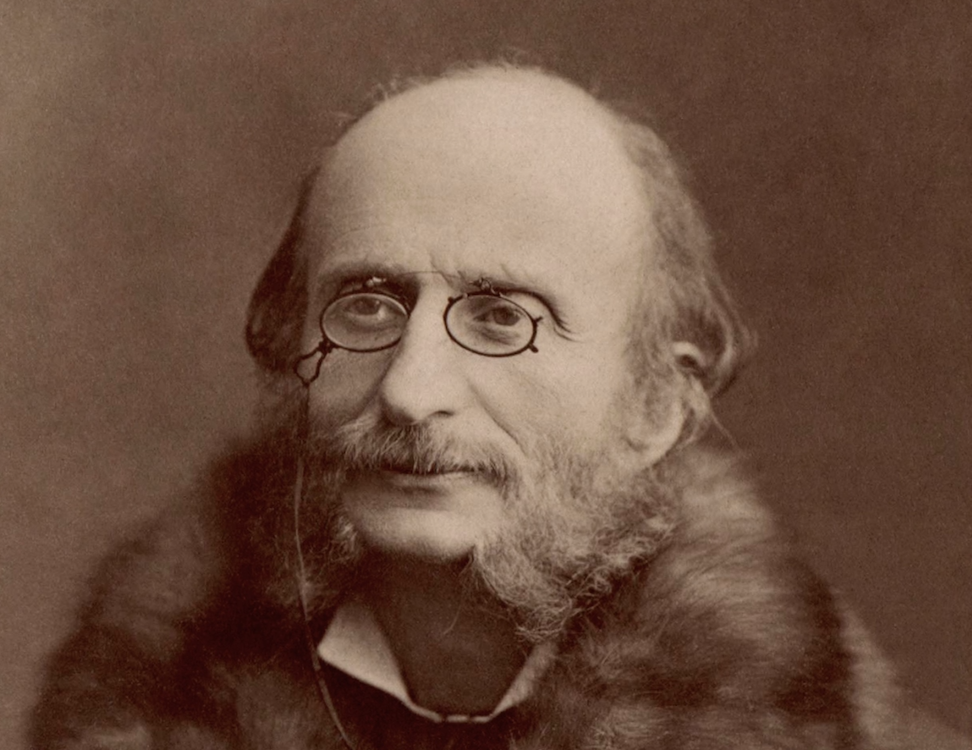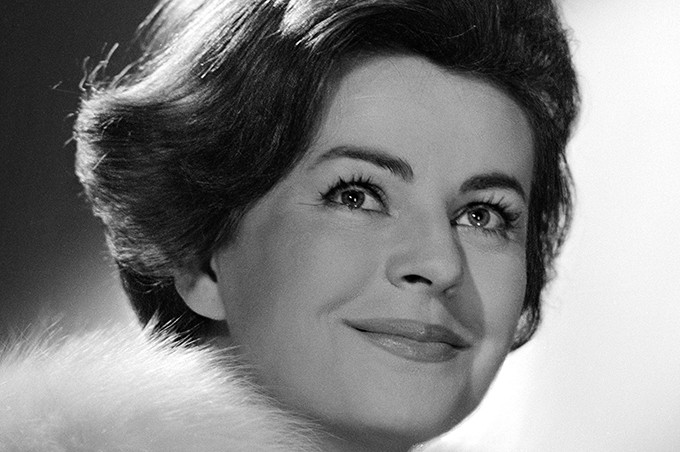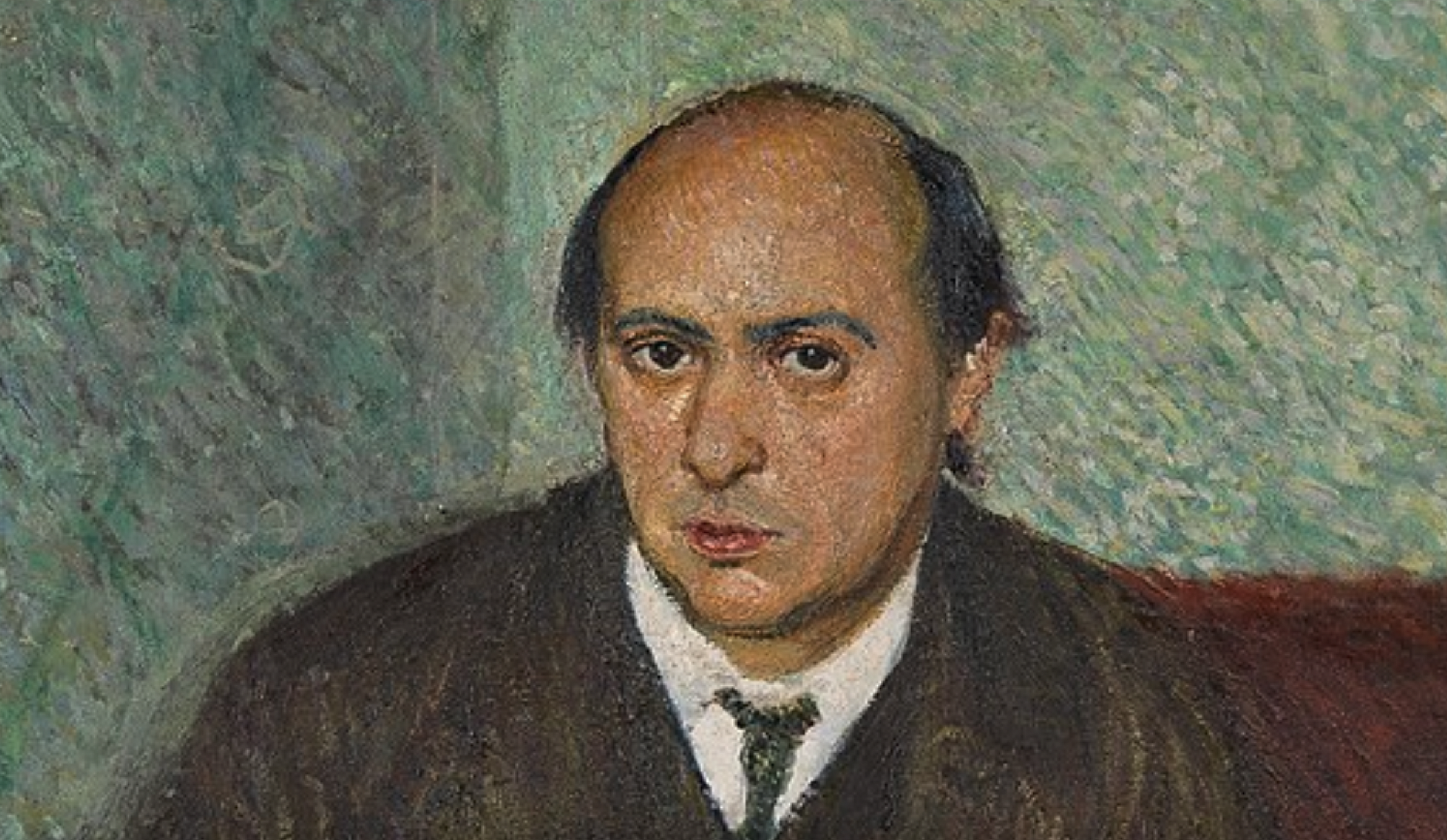11 May 2023
P.R. Jenkins
Spotlight Strauss: “Don Quixote”

“Dear Dr Strauss,
Many thanks for your letter, which I received today, and the valuable suggestions in it. I would love to do Don Quixote. The only trouble is the solo cellist. The gentleman who played it in Milan was good but he was no more than an average cellist. This work really requires a cellist of the highest artistic accomplishment. I hope to find a solution soon. This is very important to me because of all your symphonic works I have a special relationship with Don Quixote.”
Karajan to Richard Strauss in September 1940
In an interview about the “Alpine Symphony”, Karajan called Richard Strauss the “master of conclusion”. Indeed, many of his orchestral works end with a melancholic look back, as does “Don Quixote”, one of Karajan’s favourite Strauss pieces. But this has nothing to do with the respective period in the composer’s life (who lived to be 85) – apart from the “Alpine Symphony”, all Strauss’ tone poems were written before his 40th birthday!
“The greatest of the epilogues for me comes at the end of Don Quixote where Quixote says, ‘I have battled, I have made mistakes, but I have lived my life as best I can according to the world as I see it, and now…’ I find this intensely moving. It is a work I have to come back to again and again.”
“Don Quixote” is a sort of a mixture between a tone poem, based on Cervantes’ satirical novel “Don Quijote de la Mancha”, and a sinfonia concertante. It isn’t named a concerto but it has two solo parts: the cello, representing Don Quixote, and the viola, representing Sancho Pansa. Usually, the cellist is a soloist in his own right and the violist is recruited from the orchestra. The structure is a set of variations (“on a Theme of Knightly Character”), each one representing one of the knight’s adventures.
Karajan chose “Don Quixote” early in his career for programmes in Aachen (1939), for his debut at La Scala (1940) and for concerts with the Staatskapelle Berlin (1941), mostly with Enrico Mainardi playing the cello. In the 1950s, he performed it live with Mainardi, Paul Tortelier and Pierre Fournier, for example in the second half of his 1959 Lucerne concert with Glenn Gould (see here for a photo of Gould and Fournier after the concert). Fournier was also Karajan’s partner for his first recording in 1965 with the Berlin Philharmonic and Giusto Cappone. Ten years later, it was Mstislav Rostropovich who interpreted the cello part in the studio and for a concert film in the Berlin “Philharmonie”.
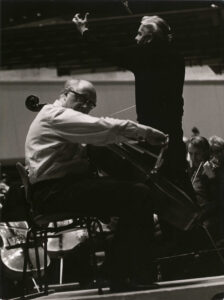
On the occasion of Karajan’s 25th anniversary as chief conductor of the Berlin Philharmonic in 1980, Rostropovich appeared once more in Berlin. Karajan’s biographer Richard Osborne noted with amusement:
“At the end of Don Quixote, Rostropovich kissed Karajan on both cheeks and then went round to the Sancho Panza, the Berlin Philharmonic’s Wolfram Christ, to do the same to him. Both kissed Rostropovich back. For one wild moment, noted The Times’s Berlin correspondent, people began wondering whether, amid this carnival frenzy, Christ would kiss his boss. Alas, he didn’t.”
Osborne knew how important this piece was for Karajan and in his book twice compared “the knight Heribert von Karajan” to the “knight of the sad countenance”. In 1964, Karajan had just left the Vienna State Opera: “Did he reflect, as he conducted Strauss’s Don Quixote in the Festspielhaus on the final Sunday morning of the 1964 festival, that, like Quixote at the hands of Sampson Carrasco, he had suffered a bloody but possibly benign defeat? It was thirty-five years since Heribert Ritter von Karajan had ridden out from Salzburg to confront the operatic world. He had enjoyed some notable victories and suffered some humiliating set-backs. He had always wanted to be ‘his own boss’. That was now a possibility.”
And at the end of his career: “In January 1986, Karajan filmed and recorded Strauss’s Don Quixote with the young Brazilian cellist Antonio Meneses and Wolfram Christ as the soloists. Twenty years on, Karajan’s view of Quixote was not so much that of Quixote the Holy Fool, the visionary martyred by his own imagination, but of a sweet, misguided adventurer, a man whose lofty ideals and crazy exploits have left him vulnerable and alone.”
— P.R. Jenkins“Conversations with Karajan” Edited with an Instroduction by Richard Osborne. Oxford University Press. 1989
Richard Osborne: “Karajan. A Life in Music” Chatto & Windus, London. 1998
